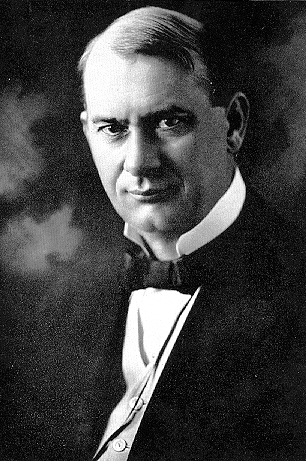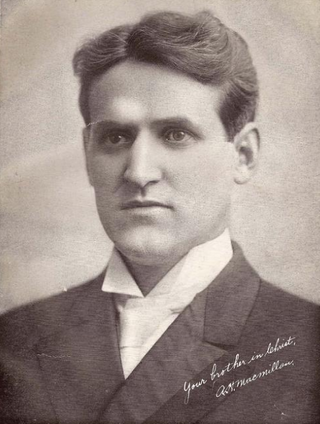
Jehovah's Witnesses is a nontrinitarian, millenarian, restorationist Christian denomination. As of 2023, the group reported approximately 8.6 million members involved in evangelism, with around 20.5 million attending the annual Memorial of Christ's death. Jehovah's Witnesses believe that the destruction of the present world system at Armageddon is imminent, and the establishment of God's kingdom over earth is the only solution to all of humanity's problems.

The New World Translation of the Holy Scriptures is a translation of the Bible published by the Watch Tower Bible and Tract Society; it is used and distributed by Jehovah's Witnesses. The New Testament portion was released first, in 1950, as the New World Translation of the Christian Greek Scriptures, with the complete New World Translation of the Bible released in 1961.
Jehovah's Witnesses's practices are based on the biblical interpretations of Charles Taze Russell (1852–1916), founder of the Bible Student movement, and of successive presidents of the Watch Tower Society, Joseph Franklin Rutherford and Nathan Homer Knorr. Since 1976, practices have also been based on decisions made at closed meetings of the group's Governing Body. The group disseminates instructions regarding activities and acceptable behavior through The Watchtower magazine and through other official publications, and at conventions and congregation meetings.

A number of corporations are in use by Jehovah's Witnesses. They publish literature and perform other operational and administrative functions, representing the interests of the religious organization. "The Society" has been used as a collective term for these corporations.

Joseph Franklin Rutherford, also known as Judge Rutherford, was an American religious leader and the second president of the incorporated Watch Tower Bible and Tract Society. He played a primary role in the organization and doctrinal development of Jehovah's Witnesses, which emerged from the Bible Student movement established by Charles Taze Russell.
The Watchtower Announcing Jehovah's Kingdom is an illustrated religious magazine, published by the Watch Tower Bible and Tract Society of Pennsylvania. Jehovah's Witnesses distribute The Watchtower—Public Edition, along with its companion magazine, Awake!.

Awake! is an illustrated religious magazine published by the Watch Tower Bible and Tract Society of Pennsylvania. It is considered to be a companion magazine of The Watchtower, and is distributed by Jehovah's Witnesses. The Watch Tower Society reports worldwide circulation of about 12.8 million copies per issue in 252 languages.
A Kingdom Hall is a place of worship used by Jehovah's Witnesses. The term was first suggested in 1935 by Joseph Franklin Rutherford, then president of the Watch Tower Society, for a building in Hawaii. Rutherford's reasoning was that these buildings would be used for "preaching the good news of the Kingdom".
Jehovah's Witnesses are organized hierarchically, and are led by the Governing Body of Jehovah's Witnesses from the Watch Tower Society's headquarters in Warwick, New York. The Governing Body, along with other "helpers", are organized into six committees responsible for various administrative functions within the global Witness community, including publication, assembly programs and evangelizing activity.
Watchtower Bible School of Gilead is the formal name of the missionary school of Jehovah's Witnesses, typically referred to simply as Gilead or Gilead School. Gilead is the flagship school at the Watchtower Educational Center at Patterson, New York, United States.

The Bible Student movement is a Millennialist Restorationist Christian movement. It emerged in the United States from the teachings and ministry of Charles Taze Russell (1852–1916), also known as Pastor Russell, and his founding of the Zion's Watch Tower Tract Society in 1881. Members of the movement have variously referred to themselves as Bible Students, International Bible Students, Associated Bible Students, or Independent Bible Students.

Studies in the Scriptures is a series of publications, intended as a Bible study aid, containing seven volumes of great importance to the history of the Bible Student movement, and the early history of Jehovah's Witnesses.

The Watch Tower Bible and Tract Society of Pennsylvania is a non-stock, not-for-profit organization headquartered in Warwick, New York. It is the main legal entity used worldwide by Jehovah's Witnesses to direct, administer and disseminate doctrines for the group and is often referred to by members of the denomination simply as "the Society". It is the parent organization of a number of Watch Tower subsidiaries, including the Watchtower Society of New York and International Bible Students Association. The number of voting shareholders of the corporation is limited to between 300 and 500 "mature, active and faithful" male Jehovah's Witnesses. About 5,800 Jehovah's Witnesses provide voluntary unpaid labour, as members of a religious order, in three large Watch Tower Society facilities in New York. Nearly 15,000 other members of the order work at the Watch Tower Society's other facilities worldwide.
The Governing Body of Jehovah's Witnesses is the ruling council of Jehovah's Witnesses, based in the denomination's Warwick, New York, headquarters. The body formulates doctrines, oversees the production of written material for publications and conventions, and administers the denomination's worldwide operations. Official publications refer to members of the Governing Body as followers of Christ rather than religious leaders.
Jehovah's Witnesses originated as a branch of the Bible Student movement, which developed in the United States in the 1870s among followers of Christian restorationist minister Charles Taze Russell. Bible Student missionaries were sent to England in 1881 and the first overseas branch was opened in London in 1900. The group took on the name International Bible Students Association and by 1914 it was also active in Canada, Germany, Australia and other countries.
The eschatology of Jehovah's Witnesses is central to their religious beliefs. They believe that Jesus Christ has been ruling in heaven as king since 1914, a date they believe was prophesied in Scripture, and that after that time a period of cleansing occurred, resulting in God's selection of the Bible Students associated with Charles Taze Russell to be his people in 1919. They believe the destruction of those who reject their message and thus willfully refuse to obey God will shortly take place at Armageddon, ensuring that the beginning of the new earthly society will be composed of willing subjects of that kingdom.
"Faithful and discreet slave" is the term used by Jehovah's Witnesses to describe the group's Governing Body in its role of directing doctrines and teachings. The group is described as a "class" of "anointed" Christians that operates under the direct control of Jesus Christ to exercise teaching authority in all matters pertaining to doctrine and articles of faith.

Alexander Hugh Macmillan, also referred to as A. H. Macmillan, was an important member of the Bible Students, and later, of Jehovah’s Witnesses. He became a board member of the Watch Tower Bible and Tract Society in 1917 and again in 1920. He presented a history of the religious movement in his book Faith on the March, published in 1957.
The beliefs of Jehovah's Witnesses are based on the Bible teachings of Charles Taze Russell—founder of the Bible Student movement—and successive presidents of the Watch Tower Society, Joseph Franklin Rutherford, and Nathan Homer Knorr. Since 1976, all doctrinal decisions have been made by the Governing Body of Jehovah's Witnesses, a group of elders at the denomination's headquarters. These teachings are disseminated through The Watchtower magazine and other publications of Jehovah's Witnesses, and at conventions and congregation meetings.
Watch Tower Bible and Tract Society publications have made a series of predictions about Christ's Second Coming and the advent of God's Kingdom, each of which has gone unfulfilled. Almost all the predictions for 1878, 1881, 1914, 1918 and 1925 were later reinterpreted as a confirmation of the eschatological framework of the Bible Student movement and Jehovah's Witnesses, with many of the predicted events viewed as having taken place invisibly. Further expectations were held for the arrival of Armageddon in 1975, but resulted in a later apology to members from the society's leadership.









